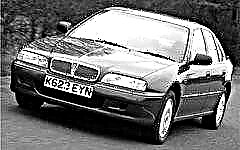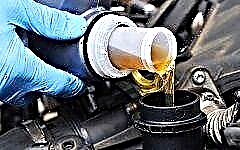

The content of the article:
- Are additives necessary for automotive oil at all?
- The mystery of the composition: the "chip" of the manufacturer and the risk of the buyer
- The main types and functions of oil additives
Is there any real benefit to adding additives to engine oil? It is unlikely that there are motorists who, at least once in their life, would not have encountered advertising of such additives.
Manufacturers claim that it is their composition that is the best, ultra-modern formula, production based on nanotechnology, and the like. It comes to the point that they promise almost a major overhaul of the engine.
But how much truth is there in such statements? Let's figure it out and evaluate which additives are worth the money that they ask for in car dealerships.
Are additives necessary for automotive oil at all?

Many skeptical car enthusiasts argue that motor oil additives are not needed at all - this is nothing more than an attempt by automotive chemical manufacturers to expand their range and raise the profitability of companies. They have one argument: engine oil is a composition that initially contains all the necessary components for the normal operation of a car engine.
It is difficult to argue with this, but precisely in the case when it comes to normal operation, and not about the situation in which most cars are operated in the urban cycle.
At first, not everyone conscientiously warms up the engine before driving. We are late for work, there is no time to warm up, we have to hurry ... and okay, once you can go on an unheated or not fully warmed up engine. Familiar situation?
Secondly, the oil should be changed after 15 thousand kilometers. And everything would be fine, but look at what kilometers they are mileage when it comes to the urban cycle: an hour to get to work, an hour to go back, and the mileage is only 50 km. And they come to change the oil "according to the odometer", and not taking into account the engine hours. It remains only to imagine what an amazing composition of waste substances is obtained in the engine at the time of oil change.
It would seem that the simplest solution is to declare in the technical documentation that the oil needs to be changed more often. But not a single manufacturer will do this, because economically it is fraught with the loss of customers, and, consequently, a decrease in profits. And now oil additives come on the scene.
These additives were originally touted as a way to extend the life of an old, troubled engine. But now we are talking about the fact that new cars need such a "magic" additive. It is extremely important for the car owner to know what kind of composition he is pouring into the engine, whether this composition is safe and whether there is any benefit from it, whether money is wasted.
The mystery of the composition: the "chip" of the manufacturer and the risk of the buyer

Unfortunately, manufacturers of automotive chemicals are in no hurry to reveal their secrets and inform the consumer about what exactly is included in their additives. It turns out a rather unpleasant thing: the same drugs have a mandatory description indicating the elements that make up the composition, and in the case of oil additives, the manufacturer makes this composition a secret "chip", inviting the buyer to take his word for it.
The addition of an additive to the oil can lead to a variety of consequences for the car. New ingredients can seriously change the characteristics of the oil itself.
Also, do not forget that this composition will be exposed to high temperatures. In the internal combustion chamber of the fuel, the oil, "ennobled" by the additive, will be together with metals, which, as is known from the course of school chemistry, can serve as catalysts for the development of various chemical reactions. Therefore, if the composition of the additive is unsuccessful, not thought out, this can make the engine oil with a changed chemical formula unusable.
There is only one conclusion - the additive can be used only if it is "proven", that is, it has a composition that is really useful and effective. Still, the "secret ingredients" are a pig in a poke and the risk of ruining a car engine altogether.
Therefore, before buying an additive, you should familiarize yourself with the assortment, characteristics, product composition and reviews of motorists - this is the only way to play it safe in case of poor-quality composition.
The main types and functions of oil additives

Motor vehicle oil performs the following main tasks:
- cools engine parts that rub during operation;
- lubricates them, reducing the coefficient of friction;
- cleans the surface of these parts from small debris and chemical reactions.
Over time, the oil loses its quality, gradually becoming clogged with small components and debris, as well as changing properties under the influence of pressure and extreme temperatures.
Engine oil loses its quality very quickly if the car is used with a cold engine, during aggressive driving. Actually, the quality is lost by those additives that are present in the composition of the engine oil when it was not yet used. In order to restore or even improve the properties of engine oil, additives are used.
Various organic chemistry compounds are used in the production of additives:
- layered;
- polymer;
- geomodifying friction processes;
- conditioning surfaces of metal parts;
- cladding surfaces of metal parts.
As mentioned above, as a rule, the qualities of the additives are advertised without mentioning their specific chemical composition. Therefore, it makes sense when choosing to rely on the rating of these products, compiled on the basis of the conclusions of experts and consumer reviews.
1. Additive Suprotek Active Plus in engine oil

The Suprotec engine oil additive is a rare exception to the rule described above - its composition and operating principle are well known. It is described in detail on the company's website, confirmed by various tests in quite reputable organizations. The additive uses the properties of natural minerals that were discovered quite a long time ago and have become the subject of a number of scientific works. However, only Suprotek managed to make a high-quality consumer product out of this knowledge.
In fact, the additive consists of a base oil and microparticles of specially selected minerals. When they are in engine oil, the friction surfaces gain the ability to grip and attach iron, which is in the oil due to natural wear and tear. This reverses the wear process and builds up a metal protective layer on the surfaces. It replenishes production - for example, the well-known "oval" in cylinders, returns parts to their original shape and size, and optimizes clearances.
It is due to this that the compression rises and levels out, the removal of oil from the walls improves and its waste is reduced. Compression provides a more complete combustion of fuel, which reduces smoke, increases engine throttle response, and most importantly reduces fuel consumption.
Since the composition only affects steel friction surfaces, it works in any engine. Whether in a diesel engine or in a gasoline engine with or without turbocharging, there are rubbing parts everywhere, regardless of design and manufacturer. This makes the composition universal.
An important feature of the Suprotec additive is that it is chemically neutral and does not interact with engine oil in any way. Neither the viscosity nor the temperature range of the oil changes, and there is no risk of clotting due to chemical reactions. In this sense, the tribotechnical composition "Active PLUS" is completely safe.
As we wrote, it is best to make sure of the effectiveness of the composition according to customer reviews, since over the 18 years of Suprotek's existence, there have been a lot of such on the Internet.
- Volume - 90 ml.
- The approximate price is 1690 rubles.
- The bottle of the composition is designed to process an engine with a volume of up to 2.5 liters with an oil volume of up to 7 liters.
Instructions for the use of the additive Suprotek Active Plus
Treatment of the engine with the tribotechnical composition "Active Plus" is carried out in three stages. At each step, the compound must be added to the engine oil according to the following procedure.
- Warm up the engine to operating temperature (normal operation).
- Stop the engine.
- Mix the contents of the vial thoroughly so that the sediment at the bottom is distributed throughout the entire volume of the liquid.
- Pour 1 bottle of compound into the engine oil filler neck. (If the volume of the oil system is more than 7 liters, you must fill in two bottles of the composition).
- Immediately after adding the compound, drive the car for 20-25 minutes in normal operation.
After the end of the procedure, the car can be used as usual.
Complete processing of the engine is carried out according to the following scheme:

2. Additive for motor oil Full Metal (Bardahl)

Manufactured in Seattle, USA, this additive is considered one of the best. The European branch of the manufacturer is SADAPS Bardahl (France and Belgium) and Maroil Bardahl (Italy).
According to the manufacturer, the Full Metal additive for petroleum oils is created using carbon compounds (C60 fullerenes), which help to reduce the level of friction of engine parts, restore the compression level of the internal combustion engine and reduce the consumption of automobile fuel used in the engine.
According to the experts who tested the additives, Bardahl products do significantly reduce friction, which leads to an increase in engine power and a decrease in fuel consumption.
But you should not consider the composition a panacea - the effect of it is not too long, you need to top up the additive with each oil change, and the cost of the additive "bites" a little: a 400 ml package will cost the buyer about 2300 rubles.
3. SMT2

It is also an American antifriction oil additive, which, in addition to reducing the coefficient of friction of automotive parts, prevents scoring that inevitably forms in the piston unit over time. The manufacturer also points out that along with the usual "classic" properties of SMT2 additives, it reduces the level of smoke in engine exhaust gases.
The experts noted that this additive really has the declared property of restoring metal surfaces. The reason for this effect is the presence of components that actively adsorb with the surface of parts: esters, quartz carbonates and other active compounds.
The disadvantage of SMT2 is its scarcity - this composition rarely appears on sale. But there is good news - if the engine is not too worn out, there is no need to spend money on a more expensive additive, which is positioned by the manufacturer as a composition of a new generation, the classic SMT is enough.
An important point: this additive is only suitable for the engine, you must not pour this additive into the gearbox (especially in the automatic one)!
The SMT2 additive is produced in two versions: with a volume of 235 ml, which costs about 1000 rubles. and a volume of 1 liter worth from 2800 rubles.
4. Liqui Moly Ceratec

Experts characterize the German composition of Ceratec as a vehicle that is guaranteed to retain its declared properties for 50 thousand km of the rally. According to the results of the tests carried out, the use of this additive reduces the friction index by about half. The consequence is an increase in engine power and efficiency. 7
On the other hand, the effect of using this additive is not at all as powerful as you might expect from looking at manufacturers' advertisements. The only undoubted advantage is the duration of the effect.
Ceratec is offered in 300 ml packaging at a cost of 1900 rubles.
5.1 Stage Atomic Metal Conditioner (ХАDО)

These Ukrainian products are distinguished by the declared effects of reducing the coefficient of friction of automobile parts, leveling the acquired micro-notches on metal parts, increasing the compression value of the motor and its overall resource.
According to the test results, it turned out that the specified effects actually take place, but somewhat in a smaller volume than indicated by the manufacturers. The effectiveness of the composition is largely related to what kind of oil is used in the car and what is the general technical "health" of the motor.
Another nuance - the effectiveness of the additive can be observed only after a rather long period of use. At the same time, the price of the additive is high for fairly average indicators.
Car owners also noted that there are a lot of difficultly written points in the instructions for the additive, which can be difficult to deal with.
A 225 ml XADO additive is produced, the price of such a container is 3400 rubles.
6. Mannol Molibden Additive

This is a Lithuanian additive with antifriction characteristics that is quite popular among car owners. The additive creates a very reliable oil film on the metal surfaces of parts, which remains even under significant loads on the car. Due to this film, friction decreases, the wear interval of parts increases, the engine power increases and its "appetite" decreases.
Their positive aspects should also be noted that this additive is very "correct": it does not clog the engine oil filter. One package of the additive is designed for an engine with an oil system volume of up to 5 liters.
Of the minuses - the classic "trouble" of additives: the declared efficiency is significantly higher than the real one. But the price of Lithuanian products pleases: 230 rubles. for a can of 300 ml.
7. Additive for engine oil Energy Release

This US product is called "anti-friction air conditioner". Its principle of operation is an increase in the level of ions in the outer layers of metal parts with an increase in the engine temperature. As a result, the stability of the parts increases up to 10%, the toxicity of the engine exhaust decreases, and the engine power increases. This composition also reduces the noise level of the motor, increases its resource.
The Energy Release air conditioner can be used in internal combustion engines, in transmissions (but not in automatic transmissions!), In hydraulic boosters, hinges and bearings.
Of the minuses, it should be noted that if the engine is "running", is in poor condition, the effectiveness of the additive drops rapidly: it is good on units that have not yet been "killed".
This additive is sold in containers of 470 ml and costs from 2000 rubles.
8. Xenum VX300

The seven best additives are closed by Russian products. It is a fully synthetic microceramic compound that can be used in both engine and transmission oils (again, excluding automatic gearboxes!).
The manufacturer declared efficiency per 100 thousand km of run, but in reality this figure is much lower and depends on the quality of the oil and the condition of the engine.
The packaging is sufficient for an automotive oil system up to 5 liters. Xenum is produced in volumes of 300 ml and costs about 950 rubles.
Conclusion
Which additive to choose is, of course, up to the car owner himself. But I would like to advise you to purchase this "vitamin for the engine" exclusively in trusted stores and not trust small online traders so as not to stumble upon a fake.
Remember that it is better to change the oil earlier than risk pouring a dubious additive into the engine, which can even destroy the car.











